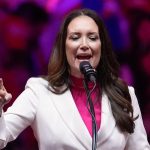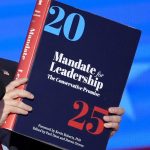There were 10,698 new infections recorded in the latest 24-hour reporting period.That’s about 2000 fewer cases than the previous day’s result of 12,632 infections. There were 160 Covid-19 patients in intensive care units on Friday, the same number as the previous day. Meanwhile in Victoria, 11,240 new cases and 36 Covid deaths have been recorded in the past 24 hours.There are now 707 infected people in Victorian hospitals, with 79 in intensive care and 29 on ventilators.Victoria’s pre-Omicron peak for Covid hospitalisations was 851 in October when the state was battling a surge in Delta infections.More than 93 per cent of eligible Victorians are fully vaccinated and the state has 65,968 active cases.A total of 24,737 PCR tests were taken on Wednesday and 15,382 vaccines were administered at state hubs.It came as Premier Daniel Andrews dropped a hint on how long people will have to live with one hated Covid rule.“This is a wildly infectious variant and we are being guided by safely, which has never been more important than it is right now,” Mr Andrews said.“It is very, very challenging.”Mr Andrews said it was still an uphill battle for health workers, who were seeing little reprieve despite a drop in cases.“There is incredibly pressure on our health system right now despite the fact the numbers are coming down,” he said.“Despite the fact we seem to have reached the peak, there is still very significant pressure there.”QLD RECORDS 6800-PLUS NEW CASESThe coronavirus continues to surge across Queensland, with 6857 new cases and 13 deaths reported on Friday. Of the fatalities, three had received their booster and nine were in aged care. Deaths in aged care in Queensland account for more than half of the overall tally at 118.More than 4074 tests were recorded in the last 24 hours. The number of patients presenting to public hospitals in the state’s southeast is showing signs of stabilising, as the state reported 732 hospitalisations, down from Thursday’s total of 820.Fifty people are in intensive care. The state’s death toll over the course of the pandemic has reached 234, with all but seven of these fatalities coming in the first 33 days of 2022.Queensland Health Minister Yvette D’Ath criticised the federal government’s efforts in aged care and told them to “get on with it”. “The federal government needs to implement the recommendations of the Aged Care Royal Commission to keep residents safe,” she said.Chief health officer John Gerrard said authorities were still planning for the worst in preparing for potential future waves in winter.“The virus is much more widespread than the collected data has suggested,” he said.Authorities have urged anyone who has had their second coronavirus vaccination dose at least three months ago to come forward and get their booster. ‘FULLY VAXXED’ CHANGES COMINGWhat it means to be fully vaccinated is likely to change within the coming weeks, with Scott Morrison flagging the change is “quite possible”. But the Prime Minister has insisted whether a change is made “doesn’t matter” either way because his government does not support vaccine mandates. Speaking on Brisbane radio on Thursday, Mr Morrison was asked about the potential expansion of the definition of fully vaccinated from two doses to three. “Whether we move to recognising the vaccination, the three-dose vaccination, that’s been under intense analysis by the health officials now for some time,” he told B105. “It’s quite possible they could go to that.“But that really for me doesn’t matter either way because we don’t support those mandates and things like that.”He added that it was critical for Aussies to receive their booster shot given the lessons learnt from the recent Omicron peak, but he wasn’t going to tell people what to do. “The position is that you should get your booster and particularly because of Omicron. One of the things we’ve learned over dealing with Omicron these last two months (is) that the booster helps prevent that transmission.“I don’t think people should need to be told to do it. And so many don’t, they just do it because it’s in their best interest.”Victorian Premier Daniel Andrews has been vocal in his push to have the third dose included and has flagged any change could have ramification for entering venues and events. Earlier on the Today show, Health Minister Greg Hunt said it was “more likely than not” that the definition of fully vaccinated would change. “I think it is more likely than not, that’s my expectation. We want everybody to be boosted in any event,” Mr Hunt said. A senate committee was told on Wednesday that the term fully vaccinated could be replaced with “up to date on vaccinations”. The nation’s expert immunisation panel has been deliberating whether or not to change the definition to include the third dose, with advice expected to be handed to the government within two weeks. ATAGI chair Nigel Crawford said it would bring the Covid-19 jabs closer into line with other vaccination programs. “We think the best terminology is actually ‘up to date with vaccination status’ rather than ’fully vaccinated’,” he told the parliamentary inquiry. “That’s a term that we’ve used in the childhood program. “So essentially, as you have your children get vaccinated, we say are you ‘up to date with your immunisations’ at a certain date or point in time.”PM’S HUGE CALL ABOUT WA BORDERScott Morrison has sensationally claimed West Australia Premier Mark McGowan did the right thing in delaying the state’s border reopening. WA was originally slated to reopen its border to other states on February 5, but last month Mr McGowan announced that would be pushed back due to the Omicron surge in the eastern states. The delay has been widely panned.But on Thursday, Mr Morrison conceded the WA Premier had done right by his state, saying Omicron was a “very different virus” and changed the goalposts.“The things we were doing before, don’t work the same way under the Omicron virus,” Mr Morrison told Perth’s 6PR radio.“As a result, you’ve got to reset, and you’ve got to rethink the things you were doing in the eastern states. “We’ve had to change things over the summer, it’s had significant impacts but Omicron brought that about. “That’s the big lesson from the eastern states to the west, when it inevitably moves – as the Premier has said – into the Omicron stage, that the lessons from the east coast be applied there and that when the health system he believes is ready to go, I’m sure he’ll take the next step.”When asked when he thought was the right time for WA to rejoin the rest of the country, Mr Morrison said he trusted Mr McGowan and his team to make the right decision. “We’ve seen in the west they want (to travel unencumbered for their work or to see family or holiday), but they want to do it safely too,” Mr Morrison said. “That’s the Premier’s call, and he has to make that decision based on what he thinks his health system is ready to absorb.”Zeroing in on the health systems in eastern states, and the high death rates being recorded every daily, Mr Morrison was asked whether the level of death was “acceptable” to him. “None of these deaths, at the end of the day whether here in Australia or around the world (are acceptable),” he said. “This is the virus doing this, and it’s happening all around the world. And Australia has one of the lowest death rates from Covid anywhere in the world. “And yes, every single one of these deaths is heartbreaking for those families, but equally every life we have saved is a great blessing.”Earlier, chief medical officer Paul Kelly revealed data showing just 0.1 per cent of Omicron-positive cases died from the virus. Mr Morrison said it was a sign of how “different” Omicron was to previous iterations of the virus. “It behaves differently. And that’s why when Western Australia, and it will get there at some point, and (Mr McGowan and I) both understand that, that looking at how you manage that when it’s there is very different to what it was with Delta,” Mr Morrison said.“That’s the lesson from the east coast.”JAB CHANGE FOR TEENSHundreds of thousands of Australians aged 16 and 17 have been given the green light to get their Covid-19 booster three months after their second dose. Almost 90 per cent of teenagers in this group have already received their second dose of the vaccine, with at least two-thirds to be eligible for their booster from Tuesday. The announcement comes as school students across the country head back to the classroom despite Omicron circulating across the nation. Earlier this week, adults were told they could get their booster after three months. Health Minister Greg Hunt said he was pleased the Australian Technical Advisory Group on Immunisation had extended Pfizer’s booster approval for that age group as they head back to school.“With the return to school this week and many of these young people in, or approaching, their final year of schooling, the ability to extend the vaccine’s protection even further will help provide stability and reassurance during this important period of their studies,” Mr Hunt said. Those teenagers will be able to receive their booster from state-run vaccination hubs, pharmacies and their GPs. So far, about 90 per cent of 16 and 17-year-olds have had two doses, with at least 60 per cent to be eligible for their booster this week. ATAGI is weighing up whether to make three doses the minimum to be fully protected against Covid-19. ATAGI chairman Nigel Crawford told the Covid-19 Senate committee on Wednesday the group were considering what “we define as up-to-date status of vaccination for Covid-19 and how that may change in theory over time”. Chief medical officer Paul Kelly told the committee Australia should prepare for a winter Omicron wave, with a warning the pandemic would not end soon. Earlier this week, deputy chief medical officer Michael Kidd urged all Australians to get their booster as soon as they were eligible. “The booster dose ensures the protection from the first two doses is even stronger and longer lasting,” Professor Kidd said on Monday. He also urged Australians who had recently contracted Covid-19 to come forward for their booster as soon as their symptoms subsided. ATAGI is also considering whether a fourth dose would be required for the average adult. Currently, severely immunocompromised adults are eligible for a fourth dose. QLD: 8643 CASES, NINE DEATHSDaily Covid infections have eased in Queensland – as have hospitalisations – but the Sunshine State’s death toll has risen. Premier Annastacia Palaszczuk on Thursday reported 8643 new cases and nine more virus fatalities over the past 24 hours, including another four deaths in aged care.Of the new deaths, all were aged over 60 and only one had received a booster shot. The state’s death toll over the course of the pandemic now stands at 234, with all but seven of these fatalities coming in the first 33 days of 2022.Deaths in aged care account for more than half of the overall tally at 118. A child under 10 with severe underlying conditions was among Wednesday’s 16 fatalities. Thursday’s daily caseload was down from the 9630 infections reported on Wednesday, but Chief health officer Dr John Gerrard said government was still planning for further waves of the pandemic. “We are particularly concerned about winter,” he said. “We‘re not going to have the opportunity of seeing what’s happening in the northern hemisphere in advance.”Dr Gerrard reported public sector hospitalisations dropped from 763 to 749, with the number of people in intensive care falling slightly to 46.There are still 23 people on ventilators. The number of private sector hospitalisations has fallen from 74 to 71. Comparatively, NSW has 2578 people in hospitals and Victoria has 752.Thursday’s update comes after the federal government gave 16- and 17-year-old Australians the green light to get their booster shots three months after their second dose. “We will make sure our vaccination clinics are public clinics will be able to take 16 and 17 year olds, from today,” Health Minister Yvette D’Ath said.
Powered by WPeMatico






